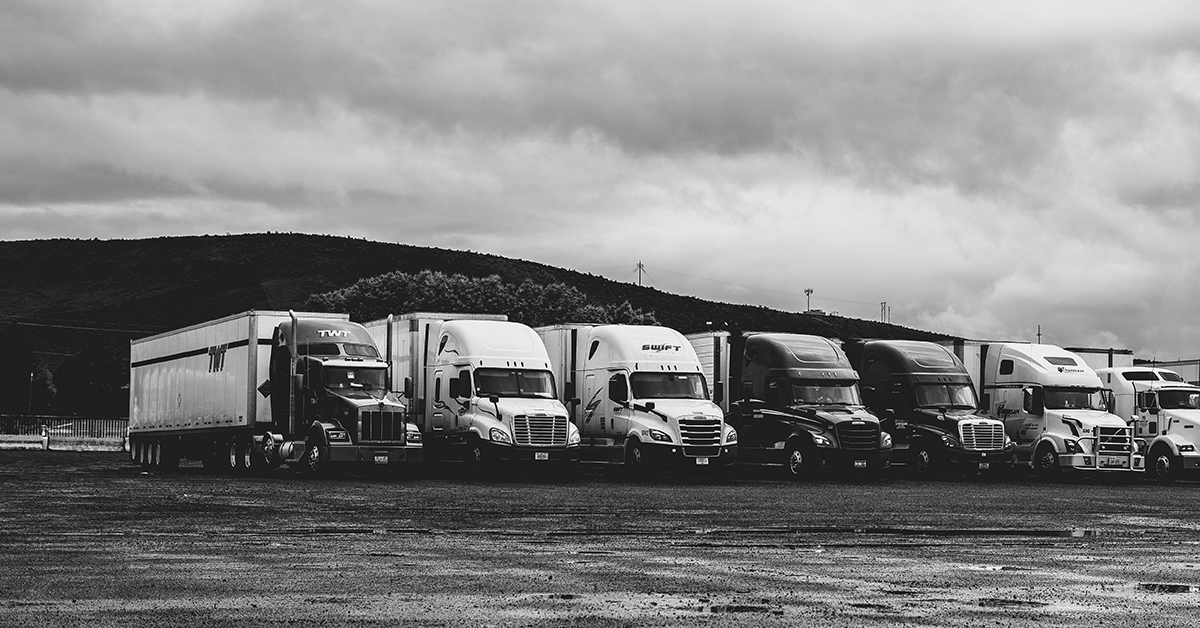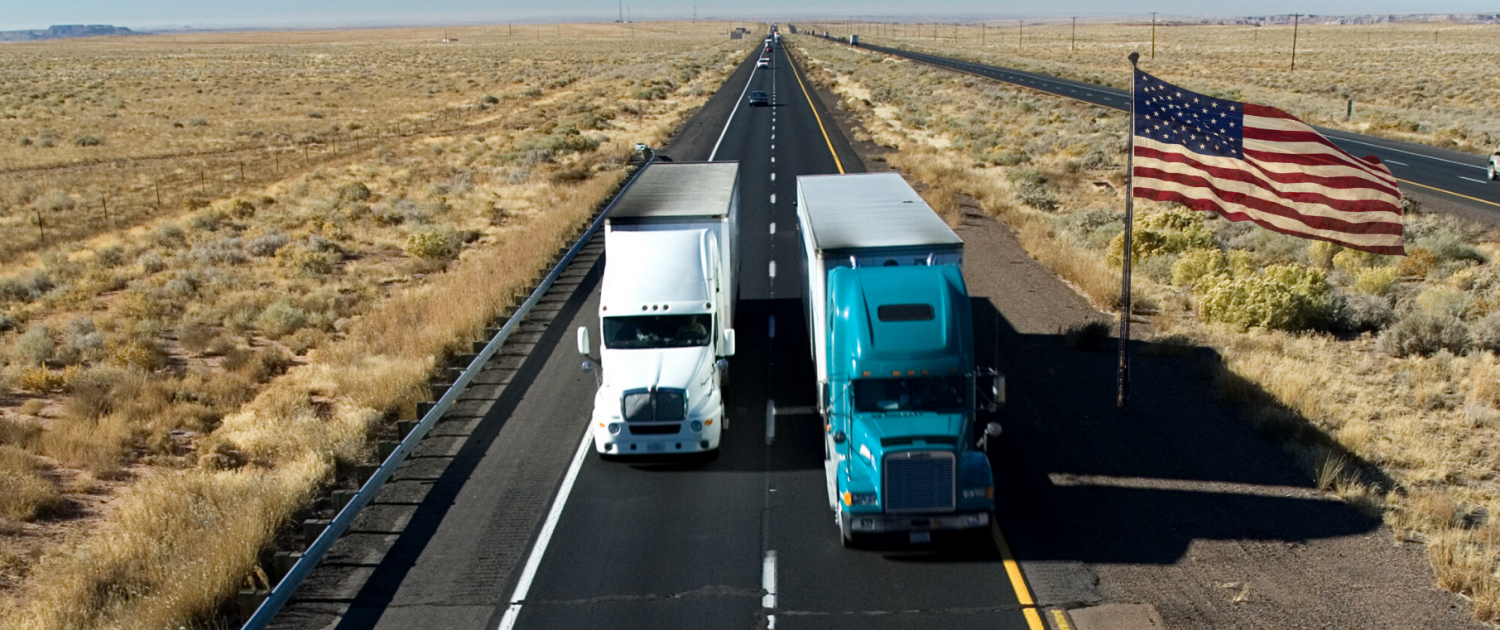
Being a trucker is not an easy job, and being a trucker’s wife isn’t either. Especially if your partner is just starting a new job, you might be wondering what to expect while they’re on the road. How will your routine change while they’re gone? What should you expect from home time? How will your kids handle having just one parent around most of the time? We talked with a few trucker’s wives about what to expect and how to keep a strong relationship through it all.
1. Trust Is Everything
All marriages live and die on trust, but that’s even more true when you spend a lot of time apart. Even if you talk regularly, a lot will happen in each other’s lives that you won’t be there for. It’s important to trust that the other person is still your teammate and you’re working toward a shared life vision. Consider sending your partner good morning and good night messages or packing several days of home-cooked meals when they leave. These are little ways to say “I love you” even when you’re not together.
Even in committed relationships, the days and weeks can seem endless at times. Talk with your trucker and have a plan for short and long-term career goals. That way, everyone has clear expectations for the situation. It’s easier to make sacrifices in the short term if you know what you’re working toward.
2. Find Your Communication Sweet Spot
Communication can be a tough one when you’re a trucker’s wife. You might be on vastly different schedules, and you don’t have the natural proximity of evenings or weekends together to catch up. As a result, communication has to be intentional. For many couples, that’s actually a gift because both people are being thoughtful in reaching out to the other.

Rebecca, Trucker’s Wife and Return to Amish star
We spoke with Rebecca Schmucker, former Return to Amish star and veteran trucker’s wife, and she shared this advice for other women with a trucking partner:
“Communication is key. My husband bought me a headset like his so I can work around the house and drive safely and we talk for hours. It’s so nice!”
To find a communication pattern that works for everyone, agree on a specific schedule. You won’t be able to talk all the time, but text, phone, and video conversations should be frequent. If you’re a parent, find time for the kids to talk with their favorite trucker and save time for just parents. Learn some trucking lingo so that you can swap stories about each others’ days and be part of each others’ lives. It might take a little while to find the right rhythm, but it’s well worth the effort!
3. You’re In Charge of the Day to Day
As an OTR trucker’s wife is that the ball is in your court for taking care of everything at home. That can mean everything from getting kids to school, soccer practice, and everywhere else to fixing the running toilet and patching that bike tire that always seems to leak.
Rebecca also shared her perspective on being home without your handyman husband. She said:
“For the women, be prepared to do things you never expected to do! I have had to fix our furnace in the middle of winter, change out an electrical outlet and take care of EVERYTHING at home!”
She continued, “It’s empowering to learn how to be self-sufficient but it can be overwhelming too. It’s not a bad life at all if you have trust and stay open and honest with each other. We appreciate our time together a lot more and make the best of it.”
Sometimes the amount of responsibility may feel exhausting or overwhelming, but many trucker’s wives also find it empowering. You are wildly capable and you’ll feel like superwoman when you’re done!
4. Maximize Home Time
Home time is incredibly important for OTR drivers and their families, and you’ll want to make the most of your time together. That said, it’s easy to let expectations skyrocket and sometimes home time won’t be everything you’ve built it up to me. You might feel a mix of excitement, sadness, and even frustration when your partner is home if things aren’t like you imagined they’d be. The best thing you can do is try to take things as they come.

Buffy, Veteran Trucker’s Wife
We also asked Buffy Olson for her advice for other trucker’s wives. She emphasized the importance of home time.
“One of the things I live by is, when he’s on the road it’s about me, my kids, the house, etc. I exercise, I watch what I enjoy, I clean, I spend quality time with kids. When my trucker is home it’s all about HIM! I cook his favorite meals, dress up, plan special things, some big, some small. But I allow my world to evolve around my husband. I think this is important because it keeps us both happy and almost in a honeymoon/young lovers phase.”
When your partner comes home, find a balance that works well for the two of you. Look for a mix of shared responsibilities and leisure time while at home together. Trucking is hard work, so your partner will probably be pretty tired some weeks. Build in some downtime, and focus on the things that are reenergizing for everyone. If you love family gatherings, go to that holiday party, but if what you really want is a quiet evening together, don’t feel shy about turning down invitations.
5. Flexibility Is Key
Even when you know when your trucker has their next scheduled home time, it’s important to stay flexible. Things like home time don’t always go as planned. Your trucker might get stuck delivering their final load only one hour away but get held up at the dock. Or, the weather might turn bad, keep drivers on the road, and then require drivers to take a 30-minute break to stay in HOS compliance. It’s easy to get disappointed when unexpected delays come up, but try to be patient and flexible. No one is happy about the situation, and making the extra effort to show a good attitude goes a long way toward starting home time off right.

Trucker’s Wife Buffy with Family
6. Keep Yourself Busy
Especially when you’re a new trucker’s wife, it’s important to keep yourself busy. That’s also true for your trucker! Keeping busy might sound like no problem if you have kids at home, but make sure you create a little time for yourself as well. If you have a lot going on, that could be as simple as a 15-minute walk or an extra 5 minutes in the shower. If you have too much time on your hands and are stuck missing your partner, dig into a new hobby. In both cases, this is a time for strong social networks. Make time for your family and friends. They’re the people who will support you when things get tough or you need a break.
7. Consider Going OTR
Jumping into the cab and trucking with your partner isn’t a good fit or even possible for everyone, but some people love it! If you’ve always wanted to see the country, ask about rider programs so you can go OTR together. If you can’t go OTR, see if you can join for one route together. This will give you a taste of your partner’s day-to-day life and helps create shared experiences.
Becoming a trucker’s wife is not an easy transition, but there is a community of women who know the ropes and are ready to support each other. Check out #truckerswife on Instagram or Truckers Wife Support on Facebook to hear from other truckers’ wives on how they make their relationships work.
STAY UPDATED ON INDUSTRY TRENDS AND BEST PRACTICES
Join our community of over 150,000 drivers who receive our updates.

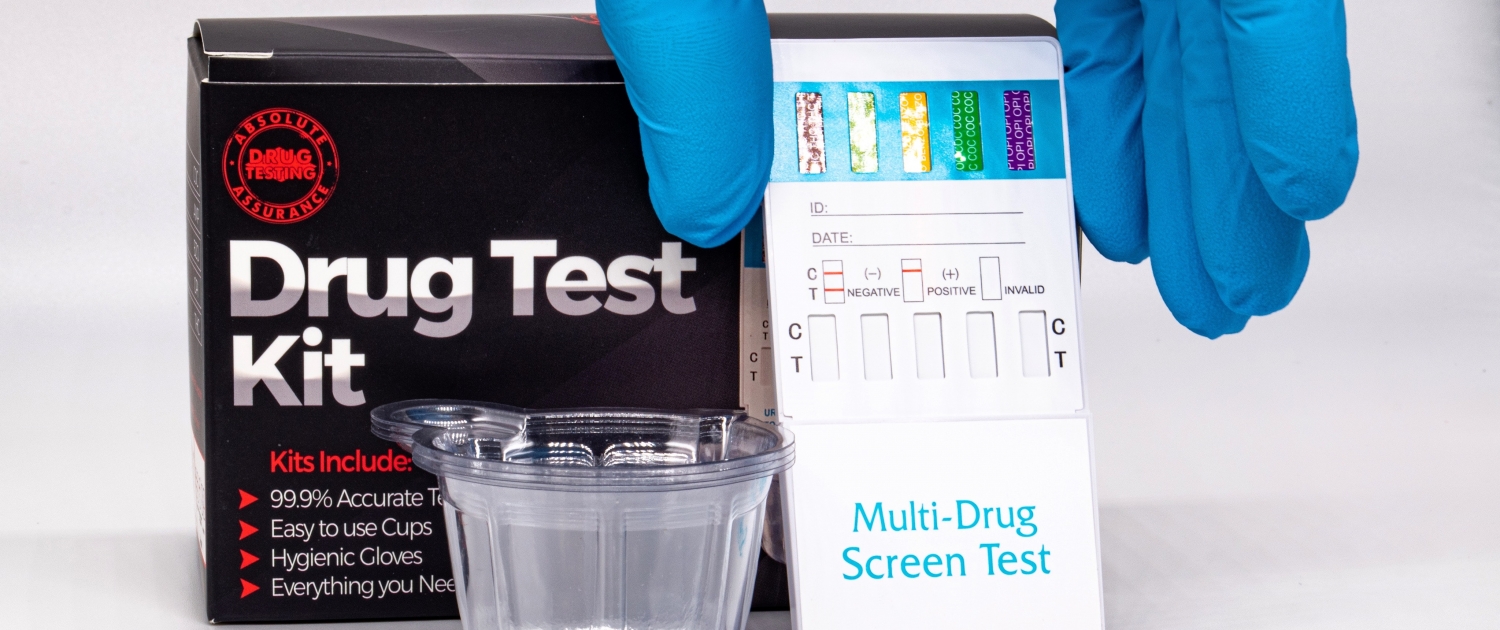


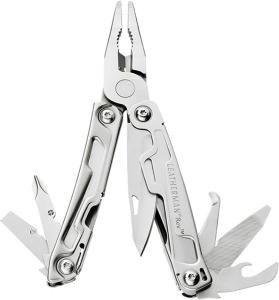 There are a thousand little reasons to have a multi-tool on hand. Leatherman is a tried and trusted brand, and
There are a thousand little reasons to have a multi-tool on hand. Leatherman is a tried and trusted brand, and  Yes, socks are the stereotypical boring gift. They definitely have a reputation, but hear us out!
Yes, socks are the stereotypical boring gift. They definitely have a reputation, but hear us out! 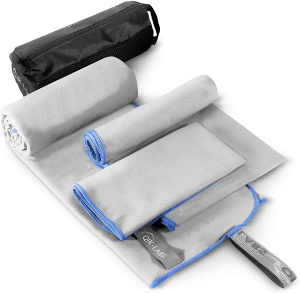 This is the gift the truckers in your life didn’t know they needed. A lot of people use these handy towels for camping, but they are right at home in a truck. A
This is the gift the truckers in your life didn’t know they needed. A lot of people use these handy towels for camping, but they are right at home in a truck. A  Entertainment is a must-have on the road! A subscription to
Entertainment is a must-have on the road! A subscription to  For every trucker, home is where the heart is. Even for the truckers who can’t resist the call of the open road, there are almost certainly places and
For every trucker, home is where the heart is. Even for the truckers who can’t resist the call of the open road, there are almost certainly places and  This emergency kit is as much fun to make as it would be to get. Some people might claim that snacks on the road aren’t a “real” emergency, but we beg to differ. This is one of the best Christmas gifts for truck drivers who have a sense of humor and
This emergency kit is as much fun to make as it would be to get. Some people might claim that snacks on the road aren’t a “real” emergency, but we beg to differ. This is one of the best Christmas gifts for truck drivers who have a sense of humor and 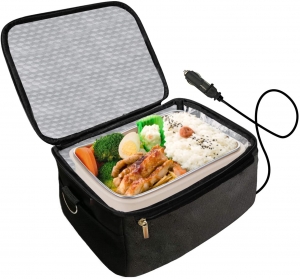 A
A  Free weights get a lot of good press, but
Free weights get a lot of good press, but 




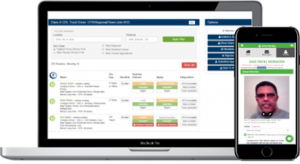


 Once a Truck Driver
Once a Truck Driver
 Deciding to Maintain a CDL License
Deciding to Maintain a CDL License Two Essential Professions
Two Essential Professions

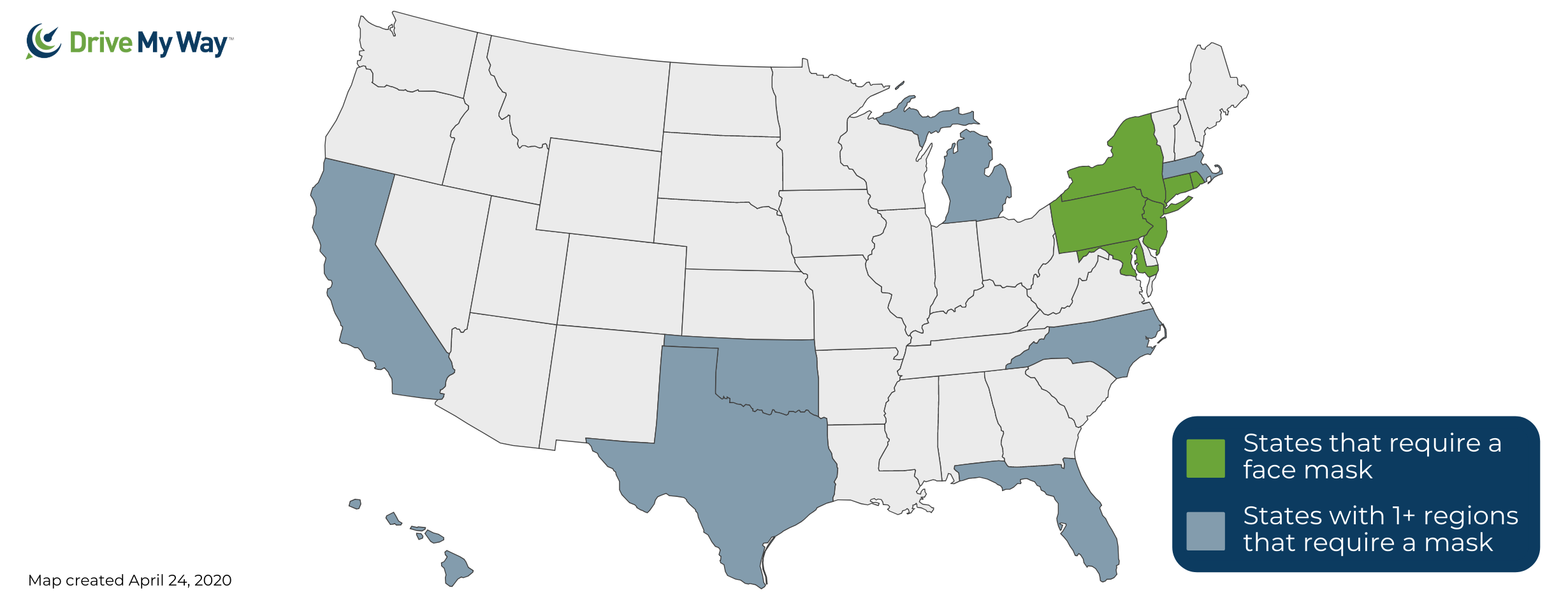


 Facetime, Skype, and Zoom are all great video calling platforms that have a free plan for users. Especially with younger children, being able to see and hear each other is huge. Even when you’re away, your kids will know your voice and be excited to see you when you walk through the door.
Facetime, Skype, and Zoom are all great video calling platforms that have a free plan for users. Especially with younger children, being able to see and hear each other is huge. Even when you’re away, your kids will know your voice and be excited to see you when you walk through the door.

 Not all parenting tips are about the kids! As you share time with your children, don’t forget to
Not all parenting tips are about the kids! As you share time with your children, don’t forget to 
